ETHICAL SOURCING
September 1, 2018 | 23 min to read


Originally printed in the September 2018 issue of Produce Business.
Is this tenet the ‘Final Frontier’ of industry standardization?
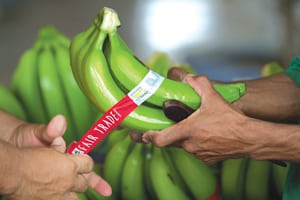 In life, there are watershed moments imploring us to act. We can choose myriad paths and degrees of change and risk, but inaction is not an option. In December 2014, an explosive, four-part investigative piece in the Los Angeles Times revealed egregious labor abuses and exploitation of migrant workers on select farms in Mexico that supply some of the most prominent supermarkets in the United States with fresh produce.
In life, there are watershed moments imploring us to act. We can choose myriad paths and degrees of change and risk, but inaction is not an option. In December 2014, an explosive, four-part investigative piece in the Los Angeles Times revealed egregious labor abuses and exploitation of migrant workers on select farms in Mexico that supply some of the most prominent supermarkets in the United States with fresh produce.
Heart-wrenching and vivid accounts from laborers described mistreatment, illegal withholding of wages, brutal working conditions and squalid living quarters, all memorialized in photos. Fairly or not, a punishing supply chain graphic linked key suppliers, distributors, retailers and foodservice operators, sending shockwaves through the industry. Without full context or balanced comments from those implicated, the article uncovered jarring injustices and tarnished the industry.
The LA Times series, which quickly went viral, exposed retailer and supplier culpabilities, and the need for accountability. It underscored the challenges of guaranteeing ethically sourced perishable products bought and sold within a complex global supply chain, embedded in low-profit margins. Most importantly, and perhaps the biggest obstacle to overcome, the solution to the problem would require a restrictive supply chain and not turning a blind eye.
Many companies already were well-vested in corporate social responsibility programs, ethical-sourcing requirements and certifications — borne out of the global movement to protect workers’ rights and dignities in various iterations of human development.
Frustrated and unnerved produce executives tried to denounce inaccuracies and unproven extrapolations or distance their operations from the problem — a shortsighted and futile strategy proven out during multiple food safety crises. These issues run far deeper and encompass the social fabric of entire communities of farm workers.
“We believe labor vulnerability should be elevated to the same level as food safety.”
— Peter O’Driscoll, executive director, Equitable Food Initiative
“The LA Times article shook the industry up as it should. It was an urgent wakeup call,” says LeAnne Ruzzementi, marketing and communications director of the Equitable Food Initiative (EFI], an unlikely consortium of major food buyers, growers, farm worker groups and consumer advocates. The LA Times article was a tipping point for expedited and novel strategies ensconced in rigorous standards, sophisticated audits to ensure ongoing compliance and verifiable accountability, notes Ruzzementi. This requires industry executives to think outside the box of traditional norms and to undergo transformative cultural changes within company operations, she contends.
ROOM FOR IMPROVEMENT
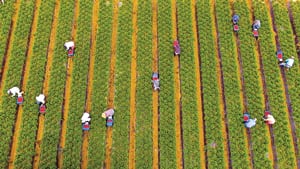

[Editor’s note: Produce Business is aware Fair Trade USA and Fairtrade International/Fairtrade America are two separate licensing entities, but for the sake of readability, references to Fair Trade in this article are written as two separate words.]
“There are farms that have significant room for improvement in terms of worker health and safety, working conditions, wages and engagement with workers,” explains Marin-Gest. “A lot of times, workers are seen as transactional on larger farms, bringing them from wherever they can, because understandably, farms are experiencing labor shortages and not all the time is the emphasis placed on the workers’ conditions,” she says. “We’d ask producers about their process, and they’d say, ‘we clean the conveyor belt, we make sure the tools aren’t contaminated, and we’d say great, but what about the human aspect, what about the person sitting there with their finger cut open?”
“We believe labor vulnerability should be elevated to the same level as food safety. EFI shifts the paradigm,” says Peter O’Driscoll, executive director, EFI. “These are all interconnected.”
Tangentially, mechanisms for change at the workforce level may avert food safety problems and improve business and consumer standings. However, the industry should embrace ethical treatment of humans as a higher calling in and of itself. There are dedicated retailers and suppliers driving this philosophy. One only needs to spend time with workers at ethical farming operations in Mexico, as Produce Business did, to understand the gravity; to hear impassioned stories of being lifted from despair and empowered, and the resulting life- altering impacts for themselves and their families and communities.
“When workers first learn about Fair Trade, sometimes they think Fair Trade means they are guaranteeing people a good product,” says Jessie Gunn, vice president of marketing at Wholesum Harvest, a third-generation family-owned organic farming company, based in Amado, AZ. “That is Wholesum’s responsibility for growing a good product. Fair Trade is about guaranteeing workers ethical treatment; it’s about the quality of their lives. That is one of the things that is really important for workers to understand,” she says, adding, “Fair Trade is 100 percent about them and not about the product.”
“Growing sustainably centers around social responsibility,” according to Pedro Batiz, co-founder and vice president of sales at Divine Flavor, headquartered in Nogales, AZ. “This is a family business that extends to the employees and a farming culture, built around caring to the full extent,” he says, adding, “from the soil to the people, to the community, and to the whole chain around it.
“Social responsibility has been a part of our everyday standards, and we have been taking them to the next level, from the beginning,” he says. “Workers are family members, and treated as such — with pride, respect and dignity,” says Batiz.
“There are retailers that want to be good citizen companies, that have a culture of treating the employees very well. They need to be very careful that the practices they use in the United States are the same practices their suppliers practice in Mexico or any other place in the world,” says Alan Aguirre Camou, head of marketing at Divine Flavor.
“My father always talked about doing the right thing. The core of this company is integrity,” says Alex Madrigal, president of Covilli Brand Organics, a 40-year-old, family-owned farming operation, headquartered in Nogales, AZ. Ethical treatment of workers is a cornerstone of that integrity, and the force behind the company’s commitment to supply 100 percent Fair Trade certified products.
SCHOOL OF HARD KNOCKS
Andrew & Williamson, headquartered in San Diego, was one of the “primary distributors” implicated in the Los Angeles Times exposé, which linked the company back to farm laborer exploitations at Agricola San Emilio in Northern Mexico. Andrew and Williamson strongly disputes the accuracy of its depicted relationship to the farm, which unfairly connected it to the nefarious activity; and also, that it had severed that relationship before the LA Times investigation began, according to Amalia Zimmerman-Lommel, director of social responsibility at Andrew & Williamson. Currently, all of Andrew & Williamson’s internal farms in Mexico are Fair Trade and EFI-certified, and its contract farms in Mexico are either Fair Trade or EFI-certified, she says.
“The information in the article, at least for our part, was not entirely true,” she says. “When we were engaged with that grower, we had partitioned off a portion of that farm, so that we could grow our products on it with our personnel, and our administration and with our requirements,” she says. “A portion of that housing had been assigned to us so that we could administrate and so forth. We were doing everything according to law, but because a portion of that land was assigned to us years before the article was written, we were tarnished, although we weren’t involved in the entire farm. It was just that small portion.
“While the story was not balanced, it was very heart-wrenching to read of workers being mistreated, not having beds to sleep on, and wages being withheld, and to know that those activities could happen on any farm or in any factory,” she says.
“Long before the LA Times article hit the stands, we had begun documenting our procedures and processes,” she explains, starting down the path of Fair Trade back in 2009/2010, and solidifying the framework, that “really helped us elevate our game in that plan… We were able to obtain 100 percent certification at our own farms in Mexico and also to obtain Fair Trade certification at two of our contract growers in Mexico.”
When Fair Trade became available in the United States, Andrew & Williamson was one of the first companies to go into a pilot program, achieving Fair Trade certification for its farm in Watsonville, CA, and the company is currently seeking Fair Trade certification for its other two farms in California, she explains, adding that she sees EFI as an evolution from Fair Trade. “We had a good start with Fair Trade, breaking down the barriers, and then when EFI came on board, it was a total 180 degree turn of what our culture became.”
“EFI is an added value because the workers are auditing their own work, and they’re auditing at the administration level to make sure they are playing on a level playing field,” says Zimmerman-Lommel. Since Andrew & Williamson started piloting the EFI model in 2013, “more than $4 million has been collected in EFI premiums benefiting farm workers,” she says.
[The EFI program began within Oxfam, based in Oxford, UK, “an international confederation of 20 NGO’s, working with partners in more than 90 countries to end the injustices that cause poverty.” EFI was kickstarted with Peter O’Driscoll’s hire in 2011. Its first EFI farm certification was an Andrew & Williamson farm in 2014, and EFI was officially spun off into an independent non-profit entity in early 2015, according to EFI’s Ruzzamenti, noting, Oxfam is still an active EFI board member.]
INDUSTRY INITIATIVES
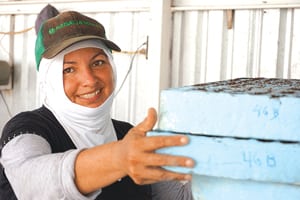

“The committee of buyers and suppliers incorporated input from association members, key stakeholders and public comments, which includes a set of guiding principles and values and is based on a foundation of employment law, good management systems, and sound occupational safety and health practices.” Both boards approved the Charter in January of 2018, with more than 40 companies formally endorsing it, including Albertsons, Costco, Kroger, Sam’s Club, Walmart and Wegmans, as well as numerous suppliers, she explains. The Charter includes Measurement Criteria, Guidelines for Responsible Purchasers, and an Employer Self-Assessment Tool.
“It speaks generally about creating a mechanism for communications with the workforce,” says EFI’s O’Driscoll. “Our question to the industry is: How will the industry verify which suppliers are doing these things and which are not, and how does the buyer or consumer know? We’ve been an advocate to look at how these different certifications and programs compare,” he says, confident those certified by EFI have met or exceeded every aspect and standard of this Charter.
Kroger benchmarked the EFI standard against its own code and recently announced to its suppliers it would accept the EFI certification as an alternative to the Kroger Social Compliance Audit: “After careful review and analysis, the Equitable Food Initiative Certification has shown to be at par with our Kroger Social Compliance audit and the corrective action procedure often needed after the audit. This is why Kroger will now be accepting the EFI Certification in lieu of the Kroger Social Compliance Audit,” the retailer wrote to its suppliers in April 2018 further noting, “This certification is by no means a requirement to supply product to Kroger; it is only an alternative to reduce audit fatigue and expenses for facilities that are socially compliant.”
“We’ve been talking with the folks involved in the Ethical Charter for Responsible Labor Practices, and we’re excited the industry is now shining the light on these issues and to fight for change in the produce industry,” says Fair Trade USA’s Marin-Gest. “We are seeking benchmarking against our standard and for the industry to work on benchmarking programs that already achieve the outcomes of that code of conduct versus creating their own,” she says.
EFI is in dialogue with other major retailers to benchmark EFI, notes O’Driscoll, adding, “Retailers that fully partner with EFI include Whole Foods and Costco.” EFI’s executive board members include Preston Witt, human rights director of Costco Wholesale’s Global Sustainability and Compliance Program, and on the foodservice side, Maisie Ganzler, vice president of strategy for Bon Appetit Management Company (Part of Compass Group).
“Costco is highly encouraging its suppliers to become EFI certified. I give Costco tremendous praise for taking the lead…” says O’Driscoll. “To Costco’s great credit, it is committed to a business acumen of farm workers trained well and incentivized to bring safe-quality products. The company has a strong social responsibility tenant, but we don’t ask people to get involved with EFI to do the right thing. Costco says it is critical to engage employees to avoid foodborne illness and at the same time, this reflects its corporate values; the way Costco treats, pays and retains its employees.
PARADIGM SHIFT TO IMPROVED BUSINESS
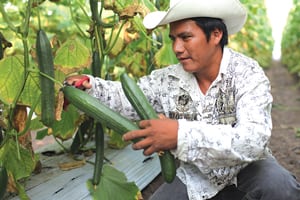

“We believe we can create a common culture, where workers feel they are being heard, and their employers respect them,” says O’Driscoll. “I’ve traveled through Guatemala, Mexico and the United States, and I’ve seen these teams training and how the curriculum opens them up and gives them a sense of dignity and empowerment.”
Over time, that culture change will accomplish two goals, says O’Driscoll: on one hand, it creates assurance for retailers and consumers their produce is coming from a responsible ethical process, where food safety protocols are followed. And we know there is vulnerability between food safety and labor. We also think this paradigm shift will improve business.
“There’s absolutely a connection between social responsibility and food safety,” agrees Michael DuPuis, quality assurance and public relations coordinator at Divine Flavor. “Basically, the social responsibility third-party audit that we’ve modeled is very similar to elements of Fair Trade and Kroger.
“Ultimately, we’re trying to always look at what’s being recognized by popular retailers such as Costco and Whole Foods,” says DuPuis noting, “One [third-party auditing group] that has recently struck our interest is called the [London-based] Ethical Trading Initiative (ETI).”
“Our retailers and wholesalers are demanding,” says DuPuis. “They’re asking us to be Fair Trade- or ETI-certified, for instance. We’ve got to make sure people are not going to be wasting assets and resources trying to go for something they’re not prepared for,” he says, adding, “I think it’s a matter of identifying how experienced the growers are, see where they stand and how they can get to the next level.”
INCENTIVIZED RETAILERS
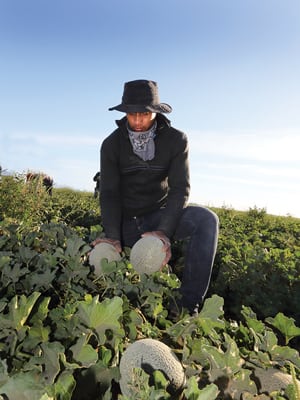

“Food retailers and wholesalers expect their suppliers to comply with labor laws and regulations,” says Heather Garlich, vice president, media and public relations, Food Marketing Institute, Arlington, VA. “Food retailers have ethical and responsible sourcing standards in place to prevent labor abuses at the supplier level, and retailers rely on the government to enforce and intervene when abuse has been reported,” she says, adding “FMI’s Safe Quality Food (SQF) Institute adopted a voluntary Ethical Sourcing Code several years ago. We are actually revising the code even further to put additional emphasis on sections related to social compliance, safety and health issues.”
In pointing out the complexity of sourcing retailers face, she says, “There are 38,000 products in the average grocery store, and the number of fresh produce suppliers varies across the size of a store, but some of the larger retailers may have thousands of agricultural suppliers in the United States and abroad.”
Many suppliers get involved with ethical sourcing initiatives because of requests from their customers. After receiving such requests, Riverside, CA-based Index Fresh got involved with Fair Trade “to show the good news that Fair Trade brings, to help the communities in which we work, and to share the positive stories of our industry with the rest of the world,” says Giovanni Cavaletto, vice president sourcing.
“Right now, it’s just isolated to a few nationwide customers,” says Cavaletto, “but we’re trying to identify some other categories, whether it’s college campuses or specialty stores, where we think the Fair Trade seal of approval could add some interest to our product.”
“There are different layers of the Fair Trade price gap … Some of the retailers and foodservice operators think that’s the only price differential.”
— Giovanni Cavaletto, Index Fresh
One of the barriers is the price differential, he explains. “There are different layers of the Fair Trade price gap; first, a licensing fee, which includes the Fair Trade premium. Some of the retailers and foodservice operators think that’s the only price differential,” he continues. But in reality, because there is a supply/demand situation, sometimes we have to pay a select premium for the fruit itself on top of the Fair Trade licensing premiums compared to the conventional fruit. Further, it is not always easy to work with a grower to participate in the Fair Trade scheme as opposed to the traditional way of doing business,” says Cavaletto.
“We believe avocado growers are less inclined to participate in Fair Trade because the prices of avocados are going up. The way Fair Trade was originally conceived with low-value commodities, farmers were unable to make a living wage in the conventional market so it was a way to subsidize with the Fair Trade premium.” Unlike coffee or bananas, however, avocados have been a very high-value product. Growers have been obtaining good prices in the conventional arena, so they may have less of a need to participate in Fair Trade, according to Cavaletto. “Less than one percent of total avocados are Fair Trade-certified,” he says, adding, “Nevertheless, we continue to work to develop Fair Trade.”
On the other side of the incentive spectrum, some retailers are resisting the temptation to spend more on certified ethically sourced product. “The main factor of resistance from retailers is due to the cost differential between [ethically brand-certified] products and conventional products,” says Marion Tabard, vice president of marketing, North America for Fyffes, headquartered in Dublin, Ireland, and the largest Fair Trade-certified banana supplier in Europe.
“For bananas, the cost passed on to the retailer is about $1 per box, and for melons, about 45 cents per box, and this poses a challenge to products that are sometimes seen as commodities. In addition to the premium passed on to the retailer, the supplier pays a per-box royalty fee to Fair Trade,” she says. For the U.S. market, Fyffes sources Fair Trade-certified bananas from Colombia and Ecuador. In the United States, Fyffes also grows and ships melons from Fair Trade-certified farms in both Honduras and Guatemala. “The volume of Fair Trade bananas remains very low compared with conventional bananas,” she says.
“Fyffes provides Whole Foods with Fair Trade-certified bananas and melons, and the company began supplying Fair Trade-certified melons to a leading warehouse club operator last year,” Tabard says. “The volume is growing year over year; however, the volume of Fair Trade products sold in the United States remains minimal compared with the volume sold in Europe.”
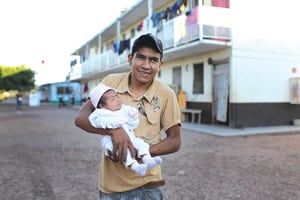

Hence, the importance of campaigns educating consumers on how their purchases are making a difference, she says, noting confusion and misunderstanding surrounding the differences among the eco-labels.
[Tabard notes Fyffes also works with the Rainforest Alliance and SMETA (Sedex Members Ethical Trade Audit) companies, and is currently investing in a project in collaboration with the Global Living Wage Coalition, in addition to the company’s direct donations benefiting communities where its fruit is grown.]
“What’s happening is a lot of retailers want to be ethical and source ethically, but the cost involved for Fair Trade is high,” according to Victor Heredia Armendariz, U.S. sales manager, Coliman Pacific Corp., based in Phoenix, AZ.
In the U.S., primarily Whole Foods is buying our Fair Trade bananas. We do business with very large retailers, supplying them organic bananas that are not Fair Trade, but they’re using other ethical sourcing programs, such as SMETA, which is one of the most widely used ethical audits in the world,” says Heredia. “SMETA is required by Walmart,” he points out, adding, “People may say negative things about Walmart, but Walmart is actually really good about taking care of the environment and making sure they’re sourcing ethically. It’s really important for them as well.”
“The volume of Fair Trade products sold in the United States remains minimal compared with the volume sold in Europe.”
— Marion Tabard, vice president of marketing, North America for Fyffes


Taking an all or nothing approach, Covilli offers all of its products as Fair Trade, whether the customer asks for it or not. “We don’t give a conventional option to a buyer,” says Madrigal. “If we don’t have a customer or retailer that’s really interested in Fair Trade, we just upcharge it, and if the market isn’t there, then we absorb the cost, the premium and service fee. … We figured that it has to be available to the receiver, to the wholesaler and retailer in order for them to build a program. They can pick up a phone and know they can get a pallet of Fair Trade whenever, any day.”
“We do work with the bigger retailers, of course, but we really aim for the mid-size retailers, and also the smaller retailers, co-ops, juicers … We’re a fairly small company, and trying to distinguish ourselves,” says Iris Montano-Matrigal, marketing manager and Alex’s wife. The transition to Fair Trade was eased, “because we already provided proper housing, schooling, daycare … those types of things that they look for, we already had in place,” she says.
Still, implementing the Fair Trade program was eye-opening, according to Madrigal, providing new insights in ways of operating. “During a pre-audit, the investigator asked a question, ‘What if somebody cuts themselves on the line where you’re packing … what happens?’ I immediately answered because I’m very familiar with food safety. I know what has to happen: You immediately stop the line. You have to sanitize product that was on the line. Everything has to be tossed, these boxes thrown away, this has to be moved … and then I gave my protocols about food safety.
“Then the auditor asked me, ‘What about the worker?’ Even though there is a protocol for the worker to know what to do, that wasn’t part of what I said … that wasn’t part of my thought process,” says Madrigal. “The thing is that we’re so focused on food safety as an industry, we also have to refocus on thinking about the employee, and that we’re doing right by our employees and by their spouses and by their children. It’s a cultural shift in that sense.”
“In terms of retailers, our program really grew out of a partnership with Whole Foods,” says Marin-Gest of Fair Trade USA. “Whole Foods continues to be a great partner. We’ve also been working with Costco a lot recently. Costco is really growing its Fair Trade program commitment. Both these retailers are leaders in this space, trying to get their suppliers Fair Trade-certified and creating partnerships with their brand suppliers.” Retailers purchasing Fair Trade-certified produce include Kroger, Safeway, Aldi, Ahold, Target, Trader Joe’s, Hy-Vee and Sam’s Club.
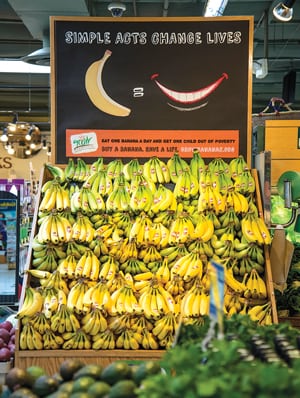

“Those who buy from us know the meaning of GROW, but retail needs to educate the consumer on the different labels. For instance, a Fair Trade label might not necessarily mean the product is organic. There is so much confusion on what the labels mean,” she says.
Social responsibility and ethically sourced can become nebulously entwined and intangibly defined. With the scope of ethical sourcing options and range of certifications available, retailers and suppliers need to assess who they do business with, and the best ways to invest money and resources to create the maximum benefits.
Ethical Sourcing Breadth and Scope
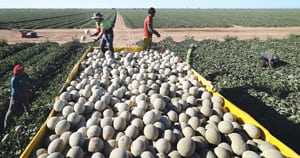

“We want to support the development of Fair Trade in ag production and other areas, regardless of the commodity, geography or farming structure,” says Nathalie Marin-Gest, director of produce & floral, Fair Trade USA, Oakland, CA (an independent entity from Fairtrade International and Fairtrade America).
“Over the years, we’ve learned where there are gaps, and as we’ve updated our programs and standards we’ve been able to address those workers that had not been included in our programs,” she says. “Our approach is continuous improvement. We really care about working with all kinds of partners, wherever they are on a continuum, to eliminate poor working conditions, forced labor and child labor, bettering health and safety protocols and equipment, medical care, and training,” she says.
“We decided in 2014 to look at this domestic space more seriously. What we saw was concern about farm workers wherever they are regardless of what side of the border they’re on, even if there is different infrastructure, impact could still be had. Wholesum Harvest, based in Amado, AZ, indeed was the first farm to get Fair Trade certified in the United States. They were great partners that had already been Fair Trade-certified in Mexico, and encourage other growers and farms to get certified, and push that Fair Trade movement,” says Marin-Gest.
The program is not just for local workers but also helps seasonal migrant workers. “The Campo Borquez Asparagus Farm in Northern Mexico has workers from Veracruz, an area in the Southeast of Mexico,” Marin-Gest says. “Women had to walk six hours a day collecting water. Now through a premium-funded water project, everyone has a house with running water.”
Demonstrating workers’ selfless support of each other at another farm, “there was a natural disaster in an area of Mexico, where some of the workers were from, and together they decided, ‘we’ll put our plans on pause, and we’re going to use our premiums to send supplies down to our colleagues in the South,’ she says.
It is important to educate consumers so they know the value of their purchase, says Marion Tabard, vice president of marketing, North America for Fyffes. For instance, impact envelops the Corporacion Rosalba Zapata Cardona, one of the banana cooperative’s Uniban associated farms, and one of the first Fair Trade-certified farms in Uraba, Colombia:
From 2009 through 2016: More than $5 million was invested for housing development; more than $1 million in funds to students to support their education through scholarships, loans and school supplies; and more than $1.1 million of funds to build a community center with auditorium and recreational facilities.
“While we’ve grown a lot, we still don’t see that many Fair Trade products as a percentage of the total produce department in the United States; it’s a challenge,” acknowledges Kyle Freund, media manager of Fairtrade America. “Whole Foods in the United States really ushered in the concept of responsibly grown, but operates differently in that it accepts Fair Trade-certified products as part of its Whole Trade private label program,” he adds.
“It comes down to knowing your consumer as the motivation for carrying [ethically sourced] products and assuring shoppers of the heavy impact their purchase has on the workers and the producer countries,” he says.
Companies are building their ethical sourcing programs in many ways. Divine Flavor’s Alta Foundation serves employees in Mexico; the seasonal workers who travel to Grupo Alta and Divine Flavor’s farms and work in the fields, explains Alan Aguirre Camou, head of marketing at Divine Flavor, headquartered in Nogales, AZ. “Through the Alta Foundation, we give back to employees in many ways: we provide healthcare and healthy food at our company cafeterias, and we offer scholarship programs to those who wish to gain new skills.”
Adds Batard, “retailers and suppliers have the opportunity to work together to empower consumers and help them make a difference, simply through the purchase of [ethically sourced products].”
The question now: will the industry band together to require a restrictive, ethically sourced supply chain for the well-being of the industry; and more importantly become a collective conscience for the well-being of its workers?
Hearing Their Voices First-Hand
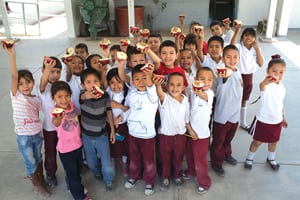

The democratic process involves thoughtful and dynamic debates between Fair Trade Committee members and workers on how to prioritize and invest Fair Trade premiums, referred to as Community Development Funds, for housing, medical care, transportation, education and other invaluable community projects. Since all workers get a vote in the process, it involves trade-offs and often excruciating decisions on what to sacrifice or put on hold. The benefits end up balancing out to help everyone over the long term, explains Adriana Alcoverde, WFA packhouse operator at Wholesum Harvest’s Amado Packhouse. She didn’t gain personal advantage from the health insurance program, which won the final majority vote in a tight race over the housing option, with a one-vote margin. It will be life changing for many to offset uncovered medical costs, according to Hazzany Ibarra, WFF re-pack team lead and Committee president. For the next round, there will be an effort to focus on those that weren’t part of the premium disbursements before.
“At first, it was very hard to make workers understand the concept of deciding projects that are affecting everyone as a community versus, ‘Just give us our individual share,’ he says. “I see a difference in people, feeling proud of what they’re doing because they’re able to help each other with projects that have a strong impact,” says Jessica Garcia, WFA GH operator and Committee secretary.
In a bit of serendipitous timing, an important annual training session is underway for all the workers to educate them on employee labor rights, Fair Trade standards, sexual harassment and the company handbook. Jennifer Jackson, supply chain specialist at Fair Trade USA is here, along with the Fair Trade Committee and Wholesum Harvest HR management to help workers understand their rights, and address questions and concerns.
Across the border, a Fair Trade Comercio Justo Mini Market in Los Janos, Sonora, Mexico, was started by Wholesum workers, who are also in charge of running it, explains Ana Fabiola Rodrigez Lauro, Committee president. She took on the responsibility after being nominated and elected by her peers. “We’re not trying to turn a profit; we’re just trying to stay solvent, operating at cost, so that our prices are affordable,” she says, pointing out, other markets in the municipality have price markups that are untenable for the workers. Now, the Mini Market has refrigeration in the back, a godsend, and the store has grown at the same time; they recently installed their first ATM machine, [also offering workers financial training/planning guidance], drawing crowds from neighboring communities, she says.
Nearby is another premium-funded project, a small tortilleria, where Wholesum Harvest workers prepare this staple product in the Mexican diet more economically using equipment to mechanize the process, serving tortillas fresh daily to the community. Other ongoing projects include contributing funds to provide meals for school children and plans for an onsite kitchen at a Mexican government-run elementary school in the area, where the children are in need of supplemental nutrition, according to Jessie Gunn, vice president of marketing at Wholesum. Across from the school, investment in a community soccer field with bleachers at first seemed like a luxury, even with the field of dirt, according to Francisco Landell, WFS general manager. The decision proved glorious, he explains, instilling energy and cheers into the community and providing children with healthy athletic activity, team-building skills, and hope for them and their families.


24 of 24 article in Produce Business September 2018

